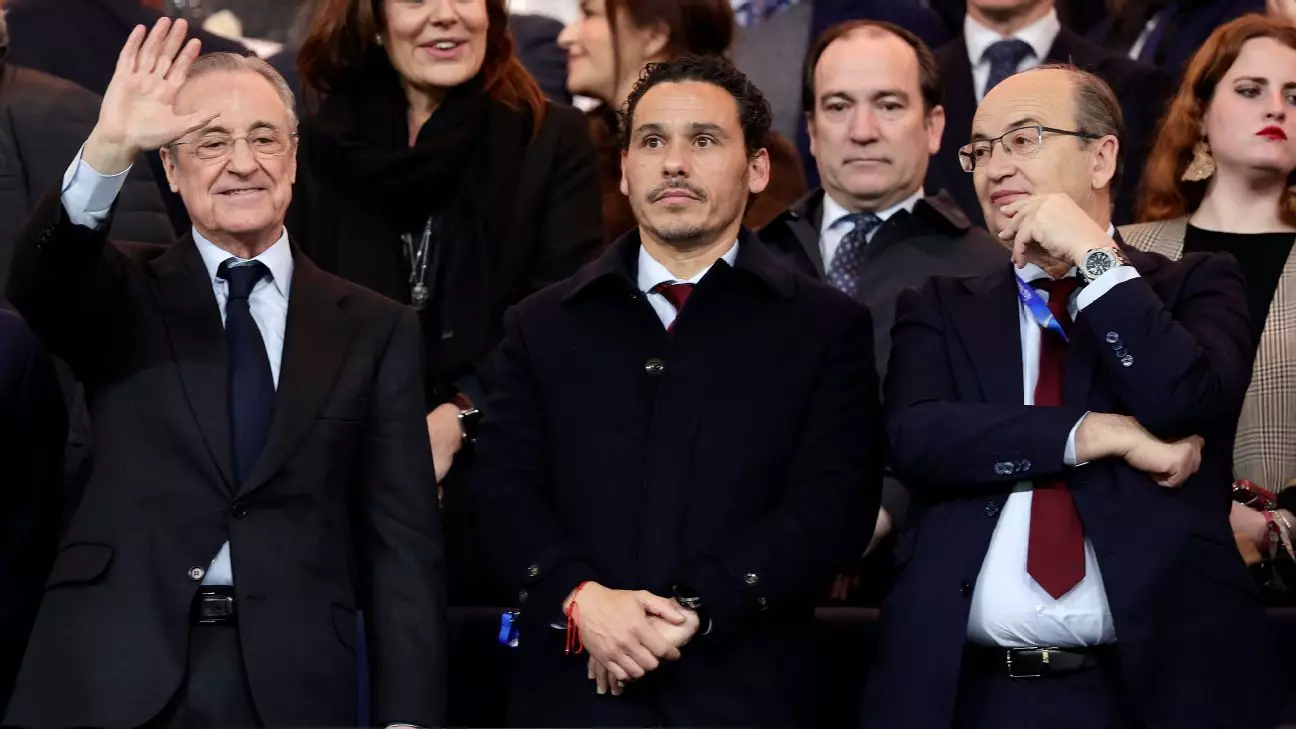In a heated exchange that echoes beyond the pitch, Sevilla’s president, José María del Nido Carrasco, has vocally criticized Real Madrid for what he perceives as detrimental attempts to undermine Spanish football. His comments followed Real Madrid’s formal complaint regarding officiating during a recent LaLiga match against Espanyol, where they claimed to have been wronged by the referee’s decisions. Del Nido’s remarks highlight a pervasive tension in Spanish football, as clubs grapple with perceived injustices and the integrity of the refereeing system.
Real Madrid’s complaint centers on specific incidents during their 1-0 defeat, notably the failure to penalize Espanyol’s defender, Carlos Romero, for a foul that many believe warranted a red card. Such decisions have prompted Madrid to question the legitimacy of the officiating process, describing it as “totally discredited.” This public outcry illustrates a broader concern regarding how refereeing standards can impact a club’s fortunes and the competitive balance within LaLiga. By demanding the release of VAR audio recordings related to the match, they aim to shed light on what they see as systemic issues affecting their performance.
The response from the broader football community has been one of disapproval. During discussions between various clubs, Del Nido emphasized the importance of standing by referees, advocating for their honor to be preserved. He argued that Real Madrid’s criticism could lead to a loss of confidence in officials, insinuating that such attacks could skew free decision-making and damage the fabric of the sport. The Sevilla president’s passionate defense reflects the belief that trust in referees is critical to maintaining the sport’s integrity.
Implications of Officiating Criticism on LaLiga
This situation raises larger questions about how criticisms of refereeing might affect competitive dynamics within LaLiga. With the title race tightening—Real Madrid, Atlético Madrid, and Barcelona are separated by a mere two points—the stakes have never been higher. Each decision made on the field can have monumental consequences for teams’ standings. Amid this backdrop, the rhetoric surrounding refereeing issues becomes increasingly charged, potentially influencing how referees officiate future matches, given the pressure they face.
A Call for Unity in Spanish Football
As Del Nido articulated, it is crucial for the footballing community to rally around the principles of fairness and integrity. The repeated accusations from certain clubs risk further fracturing the already delicate relationships within Spanish football. For the sport to flourish, dialogue must prioritize constructive criticism over accusations that undermine its foundations. Ultimately, the emphasis must lie on creating an environment where every stakeholder can participate in the rich tapestry of Spanish football without fear of unwarranted scrutiny or retaliation. Understanding and collaborating on referee performance could pave the way for a more equitable and trusted system, fostering unity across all levels of the game.

